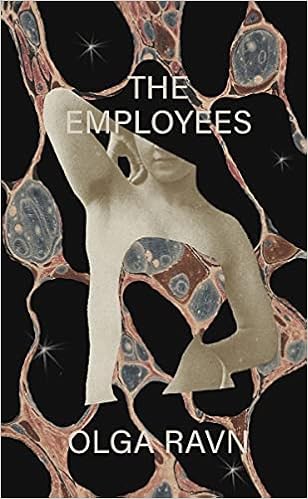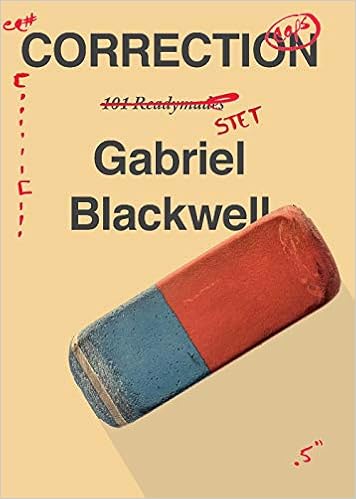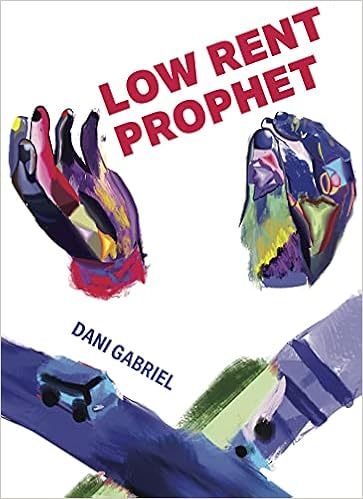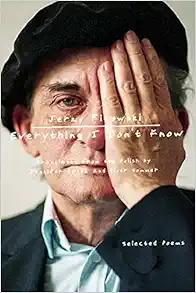Welcome to the University of Iowa Libraries’ virtual New Book Shelf. Here we will present new titles for you to browse and check out. Titles listed here will be monographs published in the current year. If you see a title you would like to borrow, please click the link below the item and sign in with your Hawk ID and Password to request a loan.
(S)kinfolk: Chimamanda Ngozi Adichie’s AMERICANAH (…AFTERWORDS)

Literary Nonfiction. African & African American Studies. When Did You First Realize You Were Black? Provoked by the fraught relationship between the African continent and American culture in Chimamanda Ngozi Adichie’s Americanah; acclaimed Nigerian-American novelist Tochi Onyebuchi takes an emotional and intellectual journey through his own education in Blackness–his first loves; his introduction to politics; and his eventual commitment to the struggle.
Ranging from Paris to a Connecticut boarding school to a harrowing walk through the streets of Palestine; and touching on lessons from Frantz Fanon; Sylvia Wynter; Mohsin Hamid; August Wilson; Dear White People; and Black Panther; Onyebuchi blends memoir and cultural criticism to explore the ways in which identities; like diamonds; are pressurized into existence by suffering; and how “the other side of suffering is self-determination.”
(S)KINFOLK culminates in a trip to Nigeria; the homeland; where the author realizes that “we share a future;” as Black Americans and Africans; on this “asymptotic journey” toward self-actualization.
https://search.lib.uiowa.edu/permalink/f/9i2ftm/01IOWA_ALMA21840473510002771
An Orange

Poetry. “It would be too easy to say love vanished from the earth…” begins Ted Dodson’s AN ORANGE, his thoughtful, experiential second collection of poems. It’s a provocation to which AN ORANGE wholeheartedly responds. Dodson’s work reroutes essay, narrative, and confessionalism, detouring from criticism into bisexual desire and navigating modernity as fluently as it imagines speculative destinations for language. From the graceful realism of the opening travelogues to its final long poem, “The Language the Sky Speaks,” AN ORANGE guides memory and affect into cosmopolitan forms: disalienating, expansive, and tonic.
https://search.lib.uiowa.edu/permalink/f/9i2ftm/01IOWA_ALMA21840472290002771
The Employees: A workplace novel of the 22nd century

Shortlisted for the International Booker prize, The Employees reshuffles a sci-fi voyage into a riotously original existential nightmare
Funny and doom-drenched, The Employees chronicles the fate of the Six-Thousand Ship. The human and humanoid crew members complain about their daily tasks in a series of staff reports and memos. When the ship takes on a number of strange objects from the planet New Discovery, the crew becomes strangely and deeply attached to them, even as tensions boil toward mutiny, especially among the humanoids.
Olga Ravn’s prose is chilling, crackling, exhilarating, and foreboding. The Employees probes into what makes us human, while delivering a hilariously stinging critique of life governed by the logic of productivity.
https://search.lib.uiowa.edu/permalink/f/9i2ftm/01IOWA_ALMA21843334060002771
Phototaxis

Translated from the French, Phototaxis is a fragmentary, darkly-humorous, and apocalyptic novel from a leading young voice from Montreal from Montreal centered around questions of friendship, the commodification of globalized tragedy, ecological crisis, the griefs of migration, and the possibility of political coherence in today’s world.
In a city mysteriously overflowing with meat, a museum is bombed, a classical piano player hooked on snuff films throws himself off a building, a charismatic but misled political organizer has disappeared, and a young immigrant navigates a crumbling continent. In the fallout of their friendship, Olivia Tapiero’s Phototaxis deploys a fugal language at turns surreal, scathingly comic, poetic, and revolutionary to dismantle our world and construct one even closer to its breaking point, or further along in its breaking. Here, voice and event surge up like reflux from the exhausted throats of nature and urban spaces, sounding out an architecture of failure within a suspiciously steady rise of fascism and its persistent counterpoints. A dystopic work of hope that carries its own disintegration, Phototaxis (translated by Kit Schluter) is Tapiero’s first novel to appear English.
https://search.lib.uiowa.edu/permalink/f/9i2ftm/01IOWA_ALMA21838357180002771
CORRECTION (Open Rose)

Fiction. Literary Nonfiction. Gabriel Blackwell’s CORRECTION is a book of recognition and reckoning, fiction in its newest form. These 101 short story-essays (what are they?) plunge out of the dizzying, devastating, truthy world of social media and into the depths of our daily lives. The result is relentlessly precise, ferociously ethical, damning, sly and essential. Blackwell is at the height of his powers as one of the most innovative prose writers working today. To this hyper-mediated world, its texts swollen with absent facts and bad intent, we offer
https://search.lib.uiowa.edu/permalink/f/9i2ftm/01IOWA_ALMA21840474010002771
Low Rent Prophet

Low Rent Prophet is poetry for anyone who has ever wanted to burn it all down. This book is about what’s left to be saved and the possibility of change and resurrection in our world today.
“A Midwestern mystic, a rustbelt bard, a poet of mystical insight and existential illumination, George Looney is, to my mind, a rare virtuoso. His poems are full of wit and despair, lyrical beauty and heartbreaking longing, honesty, and hope. He is the kind of poet who can take you to the edge of your consciousness, addressing mortality and loss, and then back home again–or to a bar, a coffee shop, a diner. Reading his work, I feel I am in the presence of a voluminous consciousness and a great heart.”–Nin Andrews
https://search.lib.uiowa.edu/permalink/f/9i2ftm/01IOWA_ALMA21840409740002771
Pregrets

Poetry. New poems by Anselm Berrigan.
“In the world of Anselm Berrigan sketchiness is next to godliness and repeated heavy-lifting becomes a pleasure. PREGRETS has the feel of wandering a giant armory filled with enigmatic objects and pointed memories. Dust motes in daylight betray a thin path forward so the ‘tongue’ of the book seems in constant peril, addictively so. ‘Red copter rises slicing a scraper into outer cubicle dreams…’ Possessed of a haunted style that moves beyond surface. Fathomless.”–Cedar Sigo
https://search.lib.uiowa.edu/permalink/f/9i2ftm/01IOWA_ALMA21840409320002771
Ways to Beg

The poems in Ways to Beg are in constant conversation. They speak to and of each other, to ancestors, gods, pets, strangers on planes, and, most often, directly to the reader. Their aim is mutual inquiry. They want to swap stories and jokes and secrets, to stay up all night, refilling your beverage of choice, diligently pursuing the unsaid, the unsayable. In short, they want to ask the right questions. To deliberate how we’ve come to inhabit our bodies, our families, our grief, our country, our planet–and how we intend to make good on that lonesome and curious responsibility.
https://search.lib.uiowa.edu/permalink/f/9i2ftm/01IOWA_ALMA21840472510002771
Everything I Don’t Know

“What good luck to finally have in English the writings of the brilliant Jerzy Ficowski, the poet who lived at least seventeen lives, fighting in the Warsaw Uprising, and later traveling for years with the Roma people through the roads of Poland, opposing his government, and watching the authorities ban his poems, a poet who translated from Spanish and Romanian and Yiddish and Roma, but most of all from the tongue of silence…Beautifully translated by Jennifer Grotz and Piotr Sommer, these poems also document the tragedy of the Holocaust, with the direct and uncompromising voice with which he reminds us of the great poets such as Różewicz and Świrszczyńska, while remaining, all the while, himself. Read a piece such as ‘I was unable to save / a single life’ in a bookstore, and I guarantee you will want to take this book with you, to keep it for the rest of your life.”–Ilya Kaminsky
https://search.lib.uiowa.edu/permalink/f/9i2ftm/01IOWA_ALMA21839940420002771
City of Skypapers

Poetry. Jewish Studies. On writing CITY OF SKYPAPERS: “CITY OF SKYPAPERS was an effort of daily writing in Tel Aviv for a span of about three years during which time I tried to inhabit and reconcile Jewish sacred time (holidays, Shabbat, daily prayer rituals) with private, social, and civil secular time–two wars with their worries and missiles, explosions, and a sense of solidarity, as well, with beloved friends in Gaza or West Bank, a custody lawsuit, daily small-scale agriculture, running along the Yarkon river, riding public transportation in Tel Aviv and Ramat-Gan, teaching, friendship, love and its disappointments, mothering. It attempts an openness to the daily world, and an attention to these details, charged by an interpenetration of the sacred and the secular, aspirations and reality. I wanted to mimic in writing the way the mind works, the reality its imagination builds, the relationships it creates, among people, objects, and geography.
https://search.lib.uiowa.edu/permalink/f/9i2ftm/01IOWA_ALMA21840472230002771
Women and Other Hostages

Poetry, “If you, like the speaker in Laura McCullough’s poem, ‘Almost Nothing Something [stars / plates / cells]’ have grown ‘tired & suspicious of poetry’ WOMEN AND OTHER HOSTAGES will absolutely revitalize you. These are riveting, wholly moving narratives of a life lived. Out of sorrow McCullough invokes a stunning grace where ‘What is stripped from you’ becomes a gift because ‘what’s left behind is all your own.’ Women of all circumstances inhabit these poems. They shed their skin like snakes, ‘memory in flesh,’ and consider the bones of what holds us together in these divisive times. This beautiful book will knock loose what is lodged in your heart.”–Suzanne Frischkorn
https://search.lib.uiowa.edu/permalink/f/9i2ftm/01IOWA_ALMA21840472410002771
Clamor

Literary Nonfiction. African & African American Studies. Music. Translated by Olivia C. Harrison and Teresa Villa-Ignacio. Artwork by Julie Simon-Titecat. Hocine Tandjaoui’s poetic memoir, CLAMOR, is a gripping testimonial to the transnational solidarities forged across the decolonizing world in the 1950s and 60s, from the rarely heard perspective of a child. Set against the backdrop of one of the bloodiest wars of decolonization, CLAMOR offers an account of the colonial soundscape and a dazzling poetic evocation of Tandjaoui’s discovery of African-American music during his childhood in colonized Algeria. A gorgeously written and translated poetic text or “proème,” CLAMOR reckons with the music that shaped Tandjaoui’s childhood, the soundtrack of the Black liberation movements in the US, and the voices of artists of the African diaspora that rise above the din of war, becoming the soundbox and sounding board of decolonization in Algeria.
Presented bilingually in French and English.
https://search.lib.uiowa.edu/permalink/f/9i2ftm/01IOWA_ALMA21840472810002771